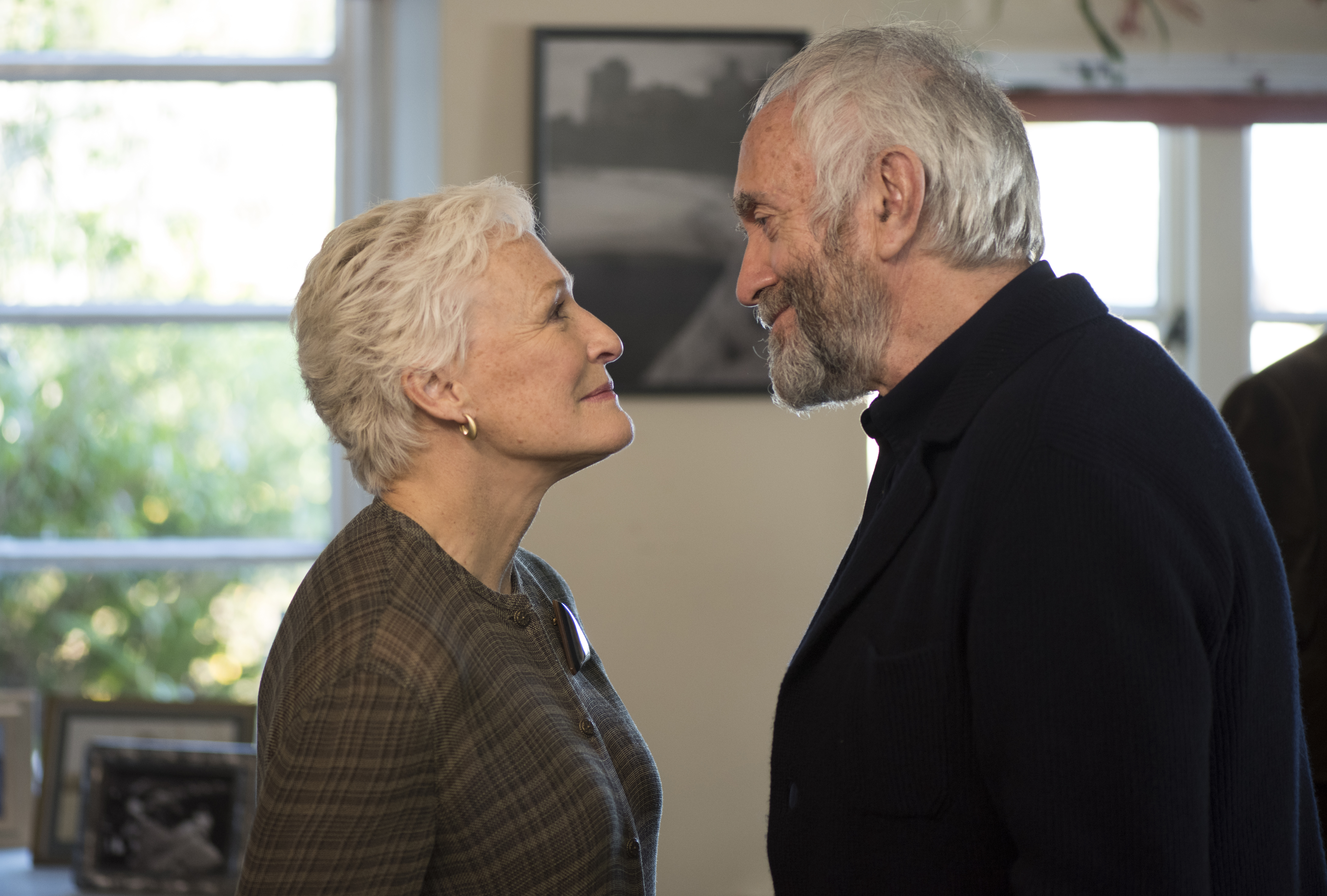In Björn Runge’s The Wife, a film based on Meg Wolitzer’s 2003 novel of the same name, Glenn Close delivers a haunting portrayal of a woman who’s completely surrendered her voice — and prodigious talent — to her husband. Close, a seven-time Oscar nominee who’s nominated for Best Actress at this year’s 91st Academy Awards, plays Joan, the wife of literary sensation Joe Castleman, whose decades-long career has culminated in a Nobel Prize in Literature.
When the call announcing the Nobel comes in, Joe urges Joan to pick up the line in the other room so she can bear witness to this historic moment. But an achievement that should unleash crazy levels of excitement and joy is tempered by the quiet contempt and resentment slowly spreading over Joan’s face as she listens to the praise lavished on Joe for his contributions to literature.
At first, it seems that Joan is feeling the sting of dedicating her life to facilitating her husband’s professional success, while sacrificing her own. The title of the film, “The Wife,” hints at the historically invisible role that women have had to occupy vis-à-vis men. While that point of view informs the entire narrative, we soon realize the devastating extent to which Joan has allowed herself to be used by Joe throughout their marriage.
Spoiler alert: This analysis reveals key plot points.
Through a series of flashbacks that begin in 1958, and a journalist (Christian Slater) intent on authoring Joe’s biography, we gradually realize that the real winner of literature’s highest honor is Joan. “The wife” has (aptly) ghostwritten his entire literary oeuvre. The scenes in which we witness Joan’s diminishment — like when the Nobel Prize organizers urge her to go shopping or enjoy a spa day while her husband schmoozes, and at one point tells a posse of intellectuals, “My wife’s not a writer. If she were I’d have permanent writer’s block.” — are brutal to watch, but it’s especially crushing once we realize she’s reaped none of the rewards for her labor.
In the late 1950s, the notion — the likely reality — that Joan could not have scaled such literary heights under her own name is a message reinforced everywhere she turns. Joe, as her professor, encourages her writing, but in (threatened) moderation; a successful female author advises her to stop while she’s ahead because she’ll “never be read”; and as a secretary at a publishing house, she hears male editors making belittling cracks about female authors. In her youth, perhaps she thought her private victory — knowing that her husband’s masterpieces were born of her imagination, not his — was enough. But ultimately it’s not.
Studies indicate that women in the workplace often choose “intentional invisibility,” rather than risk upsetting the status quo and defying gender expectations that frown on women seeking the limelight. But self-erasure hinders our collective advancement as women. Every time we shy away from amplifying our own triumphs, it stymies our progress. That’s one reason The Wife, though it chronicles a different era, still feels particularly poignant.
At the end of the film, Joan opens her notebook to a blank page, suggesting she’s finally ready to take ownership of her work. Watching her resolute gaze contemplate a new beginning, we feel her excitement and triumph like its our own.
Follow us here and subscribe here for all the latest news on how you can keep Thriving.
Stay up to date or catch-up on all our podcasts with Arianna Huffington here.


